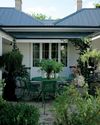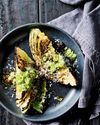Aung San Suu Kyi, winner of the coveted Nobel Peace Prize, knows too well what it is like to be persecuted. So why is the political leader of Myanmar allowing hundreds of thousands of Rohingyan Muslims to be driven from their country in what the UN describes as “ethnic cleansing”? William Langley investigates.

During her long, hard 15 years under house arrest, Aung San Suu Kyi lived alone in a decaying lakeside villa, denied news, medicine, even contact with her children, but sustained by an outside world that revered her as a heroine. Worthy Western institutions showered her with awards and honours, and right-thinking celebrities from George Clooney to Yoko Ono joined the rolling campaign for her release. Suu Kyi’s remarkable one-woman battle to bring democracy to her native Myanmar (formerly Burma), became a global cause célèbre, and when, barely two years ago, she became the country’s first civilian leader in decades, millions rejoiced.
But today, 72-year-old Suu Kyi is an international pariah, her saintly reputation shattered. The same organisations that handed her prizes are scrambling to disassociate themselves from her, and her Hollywood fan club has retreated into embarrassed silence. Her old Oxford college, St Hugh’s, has taken her portrait down, and The Nobel Peace Prize committee, which gave her its award in 1991, is under pressure to rescind the honour.
At the core of Suu Kyi’s fall from grace is an unfolding human disaster in the west of the country, where hundreds of thousands of Muslims, a religious minority known as the Rohingya, have been driven from their homes in a wave of military operations characterised by the United Nations as “a textbook example of ethnic cleansing”. Witnesses have described mass shootings, rapes and burnings, and the exodus has created a vast refugee crisis in neighbouring Bangladesh.
To the dismay of her former admirers, Suu Kyi has refused not only to intervene, but even to criticise the military’s onslaught. In the few – mostly prickly and defensive – statements she has made, she has dismissed the allegations of atrocities as exaggerations, and claimed that the actions are needed to curb terrorism.
Esta historia es de la edición April 2018 de Australian Women’s Weekly NZ.
Comience su prueba gratuita de Magzter GOLD de 7 días para acceder a miles de historias premium seleccionadas y a más de 9,000 revistas y periódicos.
Ya eres suscriptor ? Conectar
Esta historia es de la edición April 2018 de Australian Women’s Weekly NZ.
Comience su prueba gratuita de Magzter GOLD de 7 días para acceder a miles de historias premium seleccionadas y a más de 9,000 revistas y periódicos.
Ya eres suscriptor? Conectar

BATTLE FOR THE THRONE
As word of a judgement leaks from the courtroom where the Murdochs have been tussling for power, those close to the throne suggest that the battle for the world’s most powerful media empire has only just begun.

AFTER THE WAVE
Twenty years ago, the Boxing Day tsunami tore across the Indian Ocean, shredding towns, villages and holiday resorts, and killing hundreds of thousands of people from Indonesia to Africa. Three survivors share their memories of shock, terror and loss with The Weekly.

Escape to the country
Raised in New Zealand, design icon Collette Dinnigan opens the doors to her family homestead, where treasures from her travels rest side by side with the sights, sounds and style of her Australian life.

Ripe for the picking
Apricots are at their peak sweetness now, take inspiration from our savoury and sweet ideas.

Grill-licious
The backyard barbecue has come a long way from the days of chargrilling some snags. Try our fresh batch of recipe inspiration for your next cook-up.

Reclaim your brain
Perimenopause made me realise that our brains need looking after.

Long and the short of it
If youre considering a chop and change, this is how to nail a hair transformation.

Have we lost the art of conversation?
In a world of thumbs-up emojis and one-way voice memos, are we forgetting how to converse? The Weekly engages in an experiment in listening and genuine two-way chatting.

Farewell, 1936-2024 Maggie T
At Lhe Weekly Maggie labberer was and remains our guiding light the epitome of elegance with a whip-smart intellect, naughty sense of fun and innate kindness. She was a one-off.

MEL SCHILLING Cancer made me look at myself differently
One year on from going public with her bowel cancer diagnosis, Mel Schilling reveals where she's at with her health journey and how it's changed her irrevocably.